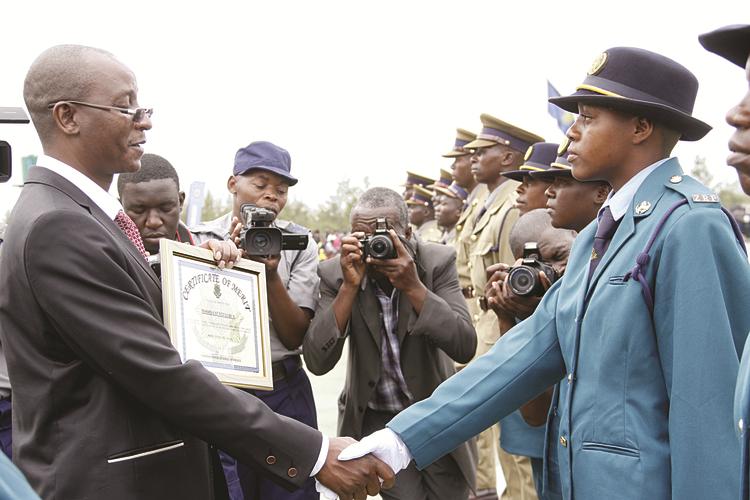This material belongs to: Zimbabwe Independent.
The Ministry of Justice, Legal and Parliamentary Affairs intends to conclude at least 20 high-profile corruption and economic crime cases within 100 days and those convicted will have their “illegally acquired wealth” forfeited to the state.
This is highlighted in Justice minister Ziyambi Ziyambi’s 100-day work plan which aims to reduce case overload at the National Prosecuting Authority (NPA), combat corruption and capacitate the prosecuting authority.
The Zimbabwe Anti-Corruption Commission (Zacc) is investigating a series of corruption cases and criminal abuse of office charges implicating former cabinet ministers who include Ignatius Chombo, Walter Mzembi, Walter Chidhakwa, Makhosini Hlongwane, Joseph Made and Samuel Undenge. Some of the cases are before the courts.
In terms of performance indicators, the Justice ministry said it would prioritise the “completion of at least 20 high-profile corruption and economic cases” as well as the “forfeiture of illegally acquired wealth on conviction of economic and corruption cases.”
The ministry also intends to curb corrupt practices such as withdrawal of cases by prosecutors.
The work plan states that there was rampant corruption among public prosecutors, most of whom are under-qualified. Fifteen prosecutors are set to be transferred in the next 100 days. To curb the challenges faced by the NPA, the ministry will recruit 102 qualified and degreed public prosecutors.
“Periodic rotations and transfers will reduce opportunities for corruption; restore confidence in the justice system and convictions will serve as a deterrent,” the work plan reads.
Because litigants in several rural areas have to travel up to 300km to access the courts, new courts will be opened in Manicaland and Matabeleland South provinces.
The Justice ministry also intends to open Mutasa provincial magistrate court and Chipinge and Plumtree magistrate courts.
The gazetting of resident magistrates’ courts in Concession, Karoi and Guruve is also part of Ziyambi’s 100-day work plan, all with the aim of enhancing public access to justice.
Meanwhile, in an interview on Tuesday, Ziyambi said the country’s current electoral laws are “the best in southern Africa and on the continent”. He said the harmonised elections scheduled for later this year can be held without reforms and still produce a free and fair outcome.
Civil society and opposition political parties have been calling for a reformed Zimbabwe Electoral Commission (Zec), arguing it is filled with security agents and has no credibility. The activists also argue that Zec has long been considered independent on paper only, while in reality operating at the beck and call of the ruling Zanu PF.
Laws such as the Public Order and Security Act (Posa) are seen as prohibiting citizens from taking part freely in the electoral process.
Opposition political parties have also requested that the voters’ roll be given to candidates on time. They have also demanded an improvement in voter education.
“We have a constitution that came into effect in 2013. The effect of it was that any law with parts that are inconsistent to the constitution ceased to exist whether they are aligned or not. The process of aligning legislation, be it electoral or not, is to clean up,” Ziyambi said.
“After all, our electoral laws meet African Union and Sadc guidelines. In fact, they are even better.
“In terms of conducting a free and fair election, we can achieve that. We have invited some non-governmental organisations to make presentations regarding what ideal electoral reforms are. Parliament is also deliberating on that and I am going to respond to those issues.”
Ziyambi would not be drawn into revealing who the next Zec chair will be, saying President Emmerson Mnangagwa was still in the process of consulting.
Speculation was rife that either Justice Vernanda Ziyambi or High Court judge Justice Loice Matanda-Moyo will replace former chair Rita Makarau who resigned in December last year without giving reasons.
“The President is doing necessary consultations to comply with constitutional requirements. The President appoints the next Zec chair after consultations with the Judicial Service Commission and parliament’s Committee on Standing Rules and Orders,” the Justice minister said.
“So if a certain candidate is considered, these different departments give their opinion to the president if he or she is suitable. If they have reservations they also state that. However, the appointment is going to be done very soon for the chair is needed urgently to move electoral processes.”
 info@anticorr.media
info@anticorr.media

